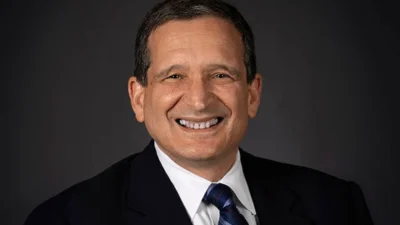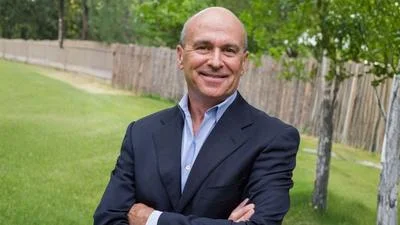The Albuquerque Police Department is moving forward after years oversight from the U.S. Department of Justice.
As of Aug. 1, some of the outside review of police policies and practices was lifted after the police displayed “sustained operation compliance.” The agreement “essentially removes about a quarter of oversight requirements,” according to a July 26 release from the police department.
“We pointed out in court today that APD’s progress is here to stay,” Police Chief Harold Medina said in a news release. “We demonstrated that we are committed to the changes made in several key areas, and we no longer need federal oversight. We are making similar progress throughout the department, and we will shift resources to meet the remaining challenges we face.”
APD’s reform efforts started in October 2014, shortly after the DOJ found that the department had engaged in a “pattern or practice of use of excessive force.” Police officers killed 20 people from 2009-2012.
In an April 10, 2014, letter to then-Mayor Richard Berry, the Justice Department outlined its concerns.
“Based on our investigation, we have reasonable cause to believe that APD engages in a pattern or practice of use of excessive force, including deadly force, in violation of the Fourth Amendment and Section 14141,” the letter stated. “Our investigation included a comprehensive review of APD’s operations and the city’s oversight systems. We have determined that structural and systemic deficiencies — including insufficient oversight, inadequate training, and ineffective policies — contribute to the use of unreasonable force.”
The DOJ and the city agreed to a Court Approved Settlement Agreement (CASA) to provide real reform and change in the department.
Dr. James Ginger was named to serve as the court-appointed independent monitor. Ginger is a former police officer, executive staff trainer, policymaker and researcher who also monitored consent decrees in New Jersey and Pennsylvania. But the CASA, originally set for five years, has continued on for nearly eight and most of it remains in place.
In September 2021 the Department of Justice released new rules for jurisdictions under a consent decree, which includes Albuquerque, for how the government will monitor reform in communities.
The guidelines limit how much cities can spend on their own monitors’ fees and outline training tools for monitors and judges that are overseeing the process. Albuquerque has been under this court-mandated federal oversight for almost eight years and Ginger said it not displayed enough progress. In July, he said there was positive movement on reform.
Medina said the department was moving forward and adapting to a new culture, but he was concerned about staffing levels.
“The people of Albuquerque demanded that we change the culture at APD, and we have made tremendous progress," Medina said in September. “But the public also deserves a fully staffed police department that has the resources to focus on fighting crime. The pendulum has swung too far in the wrong direction where officers do not feel supported. We need the local flexibility to ensure we can balance fighting crime while protecting the rights of all citizens.”
At the time Mayor Tim Keller said he was confident the department could continue to show progress.
“In this city we want to make reforms that are actually meaningful to our local communities rather than out-of-state consultants,” he said. “I believe that Albuquerque has what it takes to do that while supporting our officers, tackling crime and making our city safer for people from all walks of life.”
In June Keller said progress in reducing crime had been hampered by the COVID-19 pandemic. In his State of the City Address at the start of his second term, Keller said the police department was seeking to be released from some of the oversight.
The suspension of federal oversight requirements means the court-appointed independent monitor will no longer directly track APD’s status in several areas of the department. This leaves APD responsible for its own monitoring to ensure compliance in agreed upon areas including the multi-agency task force used to investigate police shootings, specialized units like the SWAT team, field training and evaluation and more.
Longtime Albuquerque resident David R. Anderson, a strong supporter of law enforcement who regularly accompanies officers on their patrols, has followed the process closely.
“The Albuquerque Police Department has done an incredible job complying with the negotiated DOJ/city of Albuquerque consent decree,” Anderson told New Mexico Sun. “The lifting of some oversight and allowing APD to go into a self-monitoring mode is well overdue. Hopefully, APD will be under self-monitoring mode in all the areas sooner than later.”
He said he has attended a recent oversight hearing that lasted more than eight hours, and regularly attended past sessions. He also meets with the president and vice president of the Albuquerque Police Officers Association and has developed “a strong working relationship” that has been very informative, Anderson said.
There are clear signs pointing toward progress in his view,
“Both parties appear to be in agreement on certain portions of the oversight agreement,” he said. “Hopefully, the agreement will be finalized soon by the federal judge. In my opinion there are positives aspects of oversight. I believe our officers are better trained than prior to the agreement, especially in the area of de-escalation.”
Anderson, however, noted there is a downside.
“Criminal suspects have somewhat become emboldened knowing that APD is under scrutiny and somewhat restrained," he said. "I’ve observed criminal suspects take advantage of the fact. I have witnessed use-of-force incidents firsthand on my ride-alongs and watched officers be treated as criminal suspects when they have to use force. All the while the criminal suspect laughs.”
The department’s numbers also show another damaging effect, Anderson said, noting, "the recruitment and retention of officers has suffered greatly under police reform.”








